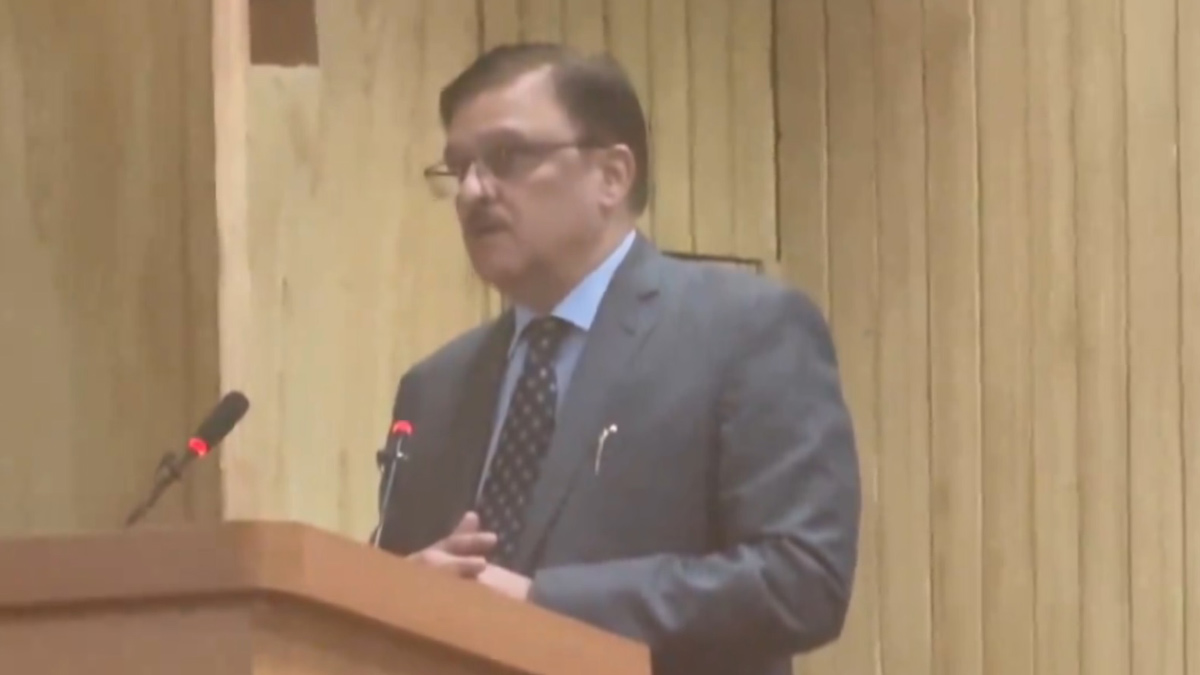Justice Abhay S. Oka: A legacy of compassion and Constitutional valour

Supreme Court Judge Justice Abhay S. Oka retired from the apex court, leaving behind a legacy defined by courage, empathy, and an unwavering commitment to Constitutional principles. His last working day on Friday was marked by extraordinary resolve as he delivered 11 judgements, merely hours after returning from Mumbai following his mother Vasanti Oka’s funeral. This act of dedication, defying personal grief and the Supreme Court’s tradition of retiring judges abstaining from work on their last day, encapsulated Justice Oka’s ethos “I hate the word retirement.”
Justice Oka’s judicial journey began at the Thane district court, under the mentorship of his father, a lawyer. Elevated to the Bombay High Court in 2003 and later serving as Chief Justice of the Karnataka High Court, Oka earned a reputation for fearlessness. His tenure at the Supreme Court, starting in 2021, was marked by landmark rulings that prioritised liberty, privacy, and justice for the marginalised.
One of his most poignant judgements came on his final working day, invoking Article 142 to waive sentencing in a Protection of Children from Sexual Offences (POCSO) case. The case involved a man, then 24, convicted for a relationship with a minor, whom he later married after she reached adulthood. Now living happily with their child, the victim, as the Court noted, did not view the incident as a crime. Justice Oka, alongside Justice Ujjal Bhuyan, highlighted the trauma inflicted not by the act but by societal judgment and legal battles. “Society judged her, the legal system failed her, and her own family abandoned her,” the court remarked, using a committee’s findings to justify leniency. This ruling underscored Oka’s ability to balance legal rigour with human compassion, ensuring complete justice.
Oka’s judgements often reflected his commitment to constitutional values. In 2016, as a Bombay High Court judge, he struck down Section 5D of the Maharashtra Animal Preservation Act, affirming the right to privacy in dietary choices. He also championed free speech, condemning hate speech against minorities and advocating for satire’s role in democracy.
His rulings, like granting bail in high-profile cases such as the Chhattisgarh liquor scam, emphasized fairness over technicalities. His humility shone through recently when he admitted a 2016 error in a domestic violence case, stating, “Judges are human; they can make mistakes.”
At a farewell event, Chief Justice B.R. Gavai lauded Oka as a workaholic and democrat, while senior advocate Kapil Sibal noted the vacuum his retirement would leave. Oka’s insistence on working his final day, delivering verdicts that protected liberty, left an indelible mark. “A judge should not hesitate to offend anyone to uphold the Constitution,” he said, embodying a judiciary that dares to evolve. Senior Advocate Dr A.M. Singhvi said interactions in Justice Oka's court were transparent and flowed like water.
CJI Gavai revealed that both he and Justice Oka won't be taking any post-retirement jobs. "We both have decided we will not accept post-retirement opportunities and thus we both perhaps can work together after my retirement," CJI Gavai said.
Justice Oka, thanking lawyers who spoke about him during the ceremonial bench said, “I always believed that a Judge has to be very firm, very strict, and a Judge should not hesitate to offend anyone. I remember a great judge who adorned the dais here, he advised me—please remember one thing, you are not becoming a judge to become popular. I followed that advice to hilt. It was indirectly said today that sometimes I was very harsh. But I was harsh for only one reason. I wanted to uphold the principles laid down by our Constitution. And my heart is full.”
India